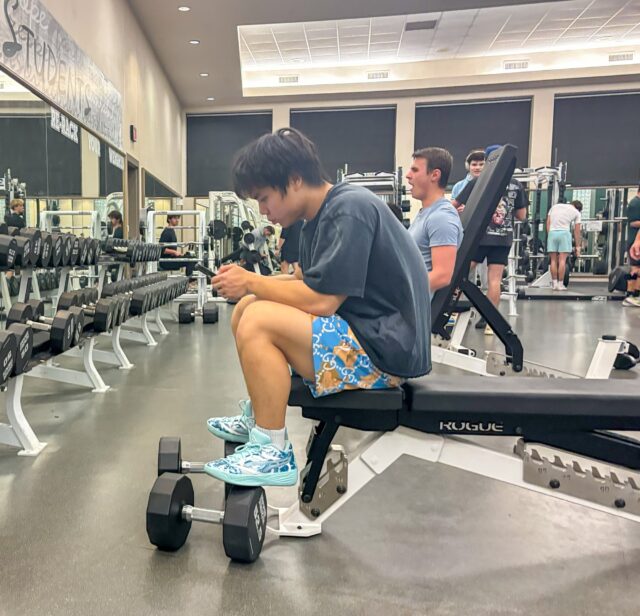By Sarina Tejani | Reporter
Social media continues trends seen in older forms of media like magazines and television, said Dr. Alec Tefertiller, an assistant professor in Journalism, Public Relations and New Media.
“Social media has the same problem we’ve seen in magazines and television for decades in that it promotes certain norms about what our bodies should look like,” Tefertiller said.
He added that social media can have an even stronger effect because it often feels more personal.
“The difference with social media is the person promoting those images is often someone you feel like you know personally, even if you’ve never actually met them,” he said.
According to an article by the Boston Children’s Digital Wellness Lab, this connection can make social media influencers even more impactful.
“The closer we feel that we are to someone, the more influence they have in our lives,” Tefertiller said. “That can be very harmful if the messages we’re getting make us feel bad about our bodies.”
Hollywood, Md., senior Madison Pyles is the vice president of Active Minds, a campus organization dedicated to mental health awareness and reducing stigma, and she shared her thoughts on the issue.
“Social media offers an unrealistic beauty standard that people can’t help but compare themselves to,” Pyles said. “Students will too often focus on an ideal many beauty influencers have achieved through unrealistic cosmetic procedures, surgical means or unhealthy dieting tactics.”
Pyles pointed out the dangers of blindly following trends and products promoted online. She noted that it’s common to see ads for products like HIMS, HERS or med spas and drugs like Ozempic, Mounjaro or Wegocy for weight loss, but not Lexapro, Prozac or Zoloft, which are anxiety meds.
“Influencers make their livelihood often from promoting products that shape our beauty standards,” she said. “When a beauty influencer flaunts a new nose job or a freshly plumped set of lips, you can’t help but wonder why you don’t meet these standards.”
For students feeling pressured by social media standards, Pyles recommended becoming more aware of biases and ads that promote beauty norms.
“Next time you are on social media, count the number of implicit or explicit ads relating to our current beauty norms,” she said. “Recognize that other people hide their imperfections. Trust people, not pictures.”
She also reminded students of the resources available at Baylor, including Academic Live Care, GAIN (a women’s weightlifting group) and Active Minds.
“We help connect students with resources that can support them,” Pyles said. “As an officer, I am happy to accompany anyone to the Baylor Counseling Center or discuss some of the resources here at Baylor to support you and your mental health.”


